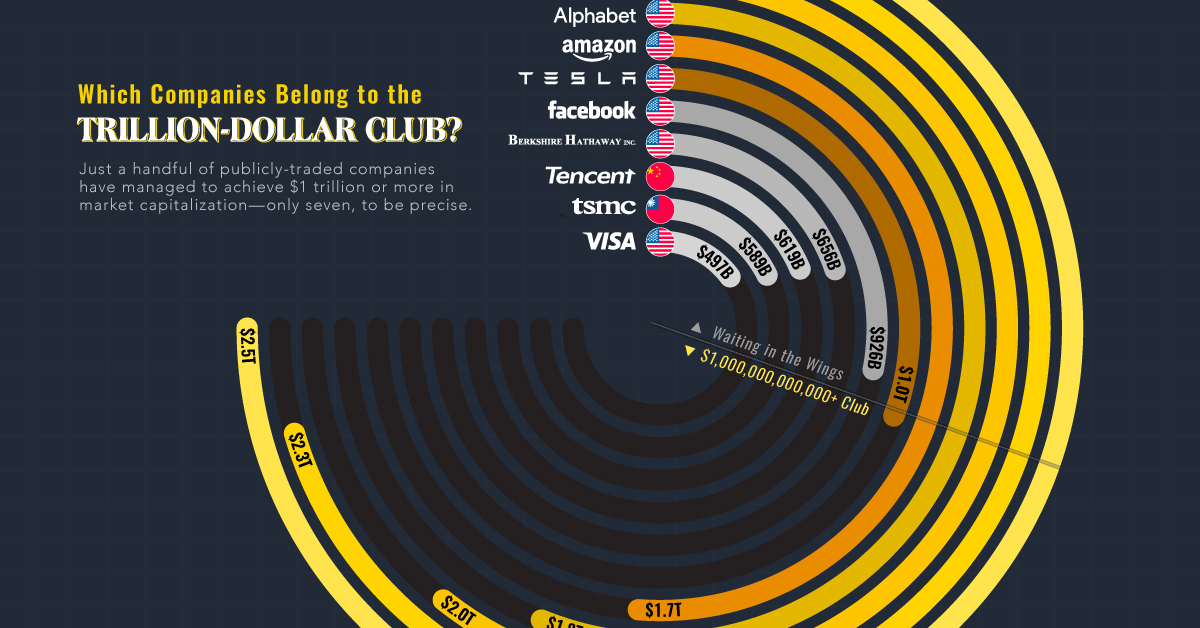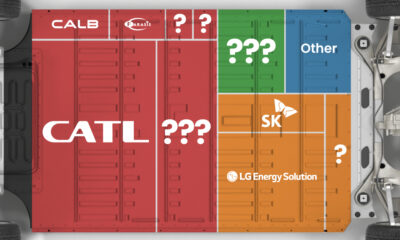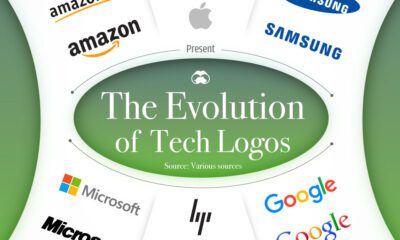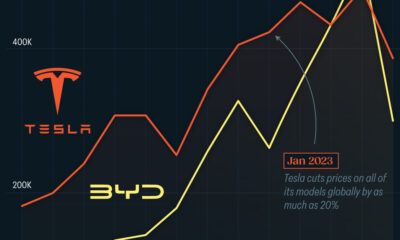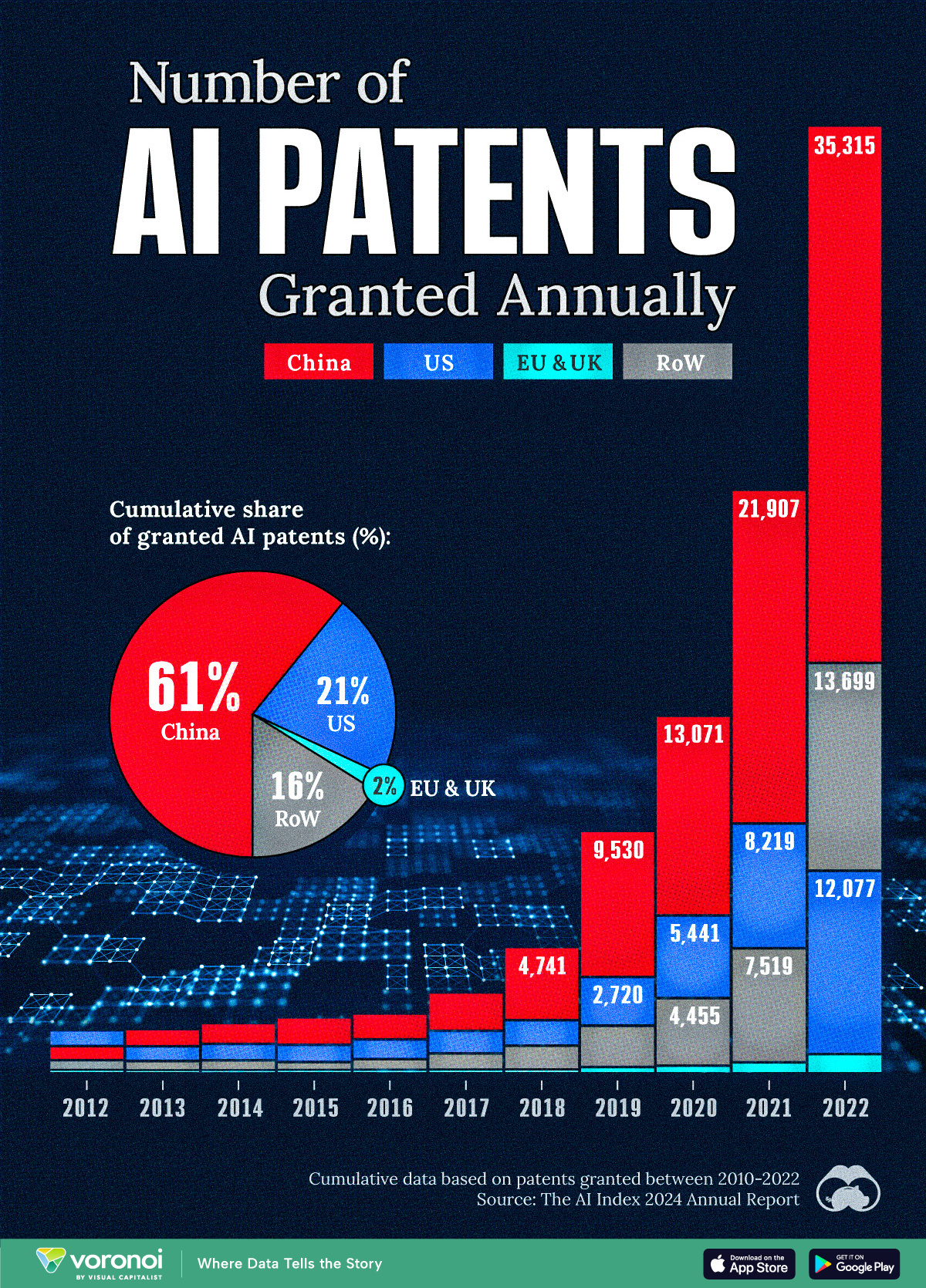Technology
Which Companies Belong to the Elite Trillion-Dollar Club?
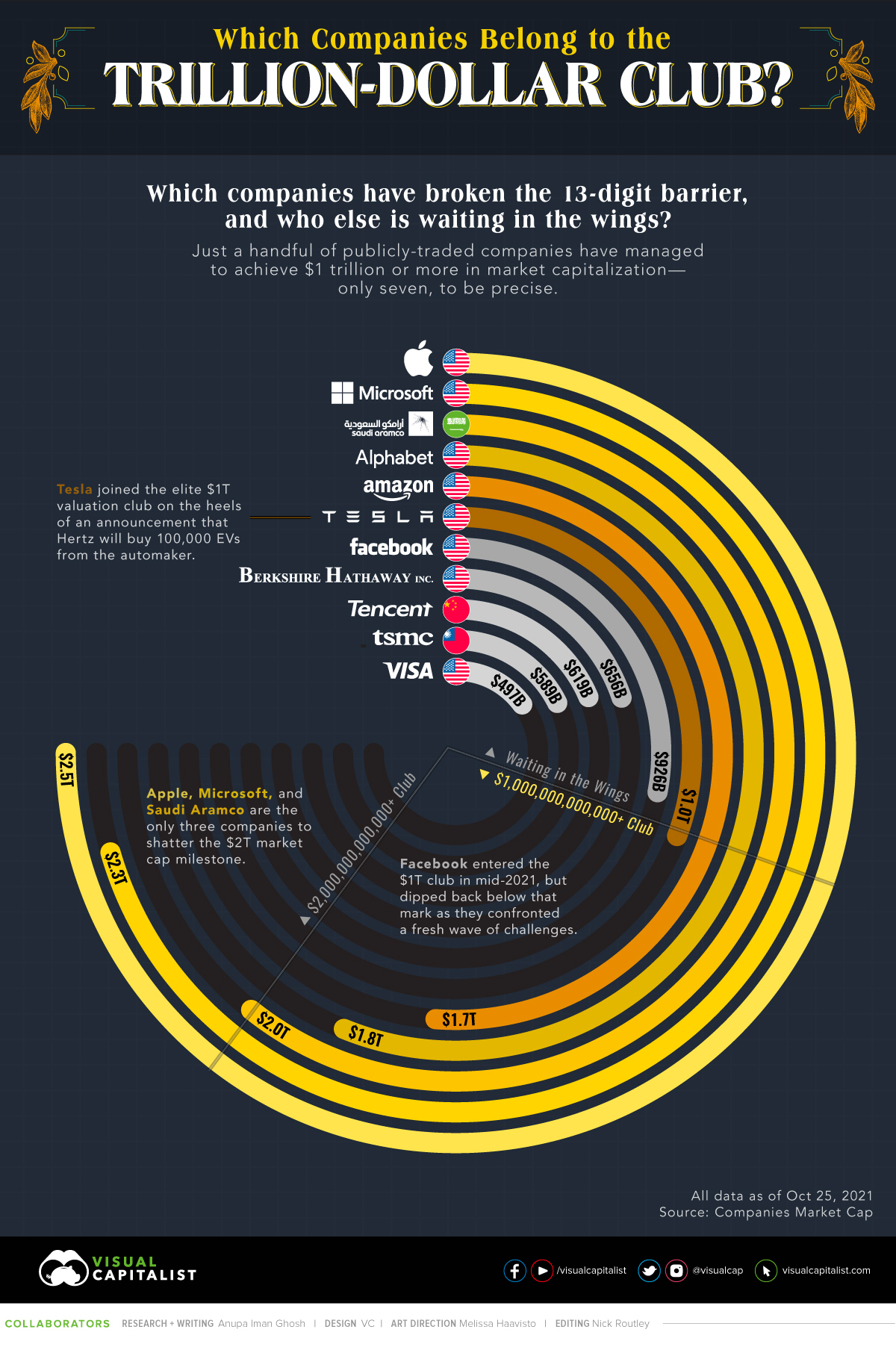
Which Companies Belong to the Elite Trillion-Dollar Club?
Just a handful of publicly-traded companies have managed to achieve $1 trillion or more in market capitalization—only seven, to be precise.
We pull data from Companies Market Cap to find out which familiar names are breaking the 13-digit barrier—and who else is waiting in the wings.
The Major Players in the Game
Apple, Microsoft, and Saudi Aramco are the three companies to have shattered the $2T market cap milestone to date, leaving others in the dust. Apple was also the first among its Big Tech peers to ascend to the $1 trillion landmark back in 2018.
| Company | Valuation | Country | Age of company |
|---|---|---|---|
| Apple | $2.46T | 🇺🇸 U.S. | 45 years (Founded 1976) |
| Microsoft | $2.31T | 🇺🇸 U.S. | 46 years (Founded 1975) |
| Saudi Aramco | $2.00T | 🇸🇦 Saudi Arabia | 88 years (Founded 1933) |
| Alphabet (Google) | $1.84T | 🇺🇸 U.S. | 23 years (Founded 1998) |
| Amazon | $1.68T | 🇺🇸 U.S. | 27 years (Founded 1994) |
| Tesla | $1.01T | 🇺🇸 U.S. | 18 years (Founded 2003) |
Footnote: Data is current as of October 25, 2021. Facebook is the 7th company historically to reach $1 trillion, but dipped out recently.
The largest oil and gas giant—Saudi Aramco is the only non-American company to make the trillion-dollar club. This makes it a notable outlier, as American companies typically dominate the leaderboard of the biggest corporations around the world.
Tesla Reaches $1 Trillion
Tesla reached the $1 trillion market cap for the first time due to a strong trading day on Monday October 25th. Their shares popped some 10%, off the announcement of some positive news from Hertz and Morgan Stanley.
First, Hertz, a car rental company, revealed an order for 100,000 Tesla vehicles — the largest order in the automaker’s history. Second, an auto analyst at Morgan Stanley made revisions and raised his price target on Tesla to $1,200.
Whether Tesla can stay a trillion dollar company will likely be a much discussed topic after today, as their valuation has always been a controversial one. Bearish investors frequently point to Tesla’s lack of fundamentals relative to traditional car companies. For instance, their market cap relative to cars sold:
| Company | Market Cap ($B) | Cars Sold (2020) | Value Per Car Sold | If Valued Like Tesla |
|---|---|---|---|---|
| Tesla | $1,000 | 500,000 | $2 million | $1.0 Trillion |
| Volkswagen | $148 | 9.3 million | $15,000 | $18.6 trillion |
| Toyota | $242 | 9.5 million | $25,000 | $19.0 trillion |
| Ford | $62 | 4.2 million | $14,000 | $8.4 trillion |
Based on the 500,000 cars Tesla sold in 2020, their $1 trillion market cap values them at $2 million per car sold. As an extreme example, if Volkswagen and Toyota were to be valued in a similar fashion, their market caps would be close to $19 trillion each. Larger than all of the elite trillion-dollar club combined.
Who Else Might Join the Trillion-Dollar Club?
Companies with a market capitalization above $500 billion are also few and far between. After Facebook, which until recently was part of the elite trillion-dollar club, Warren Buffet’s Berkshire Hathaway is the closest to joining the Four Comma Club. Though there’s still some ways to go, their market cap of $656 billion means shares would need to appreciate some 52%.
| Company | Valuation | Country | Age of company |
|---|---|---|---|
| $926B | 🇺🇸 U.S. | 17 years (Founded 2004) | |
| Berkshire Hathaway | $656B | 🇺🇸 U.S. | 182 years (Founded 1839) |
| TSMC | $619B | 🇹🇼 Taiwan | 34 years (Founded 1987) |
| Tencent | $589B | 🇨🇳 China | 23 years (Founded 1998) |
| Visa | $497B | 🇺🇸 U.S. | 63 years (Founded 1958) |
Visa, one of the pioneers of consumer credit in the United States, continues to innovate even 63 years after its founding. In attempts to expand the reach of its already massive payments ecosystem, Visa is experimenting with acquisitions, and even dipping its toes into cryptocurrency with some success.
Whether the next company to join the trillion-dollar club comes from the U.S., from the tech industry, or out of left field, it’s clear that it has some pretty big shoes to fill.
Technology
Visualizing AI Patents by Country
See which countries have been granted the most AI patents each year, from 2012 to 2022.
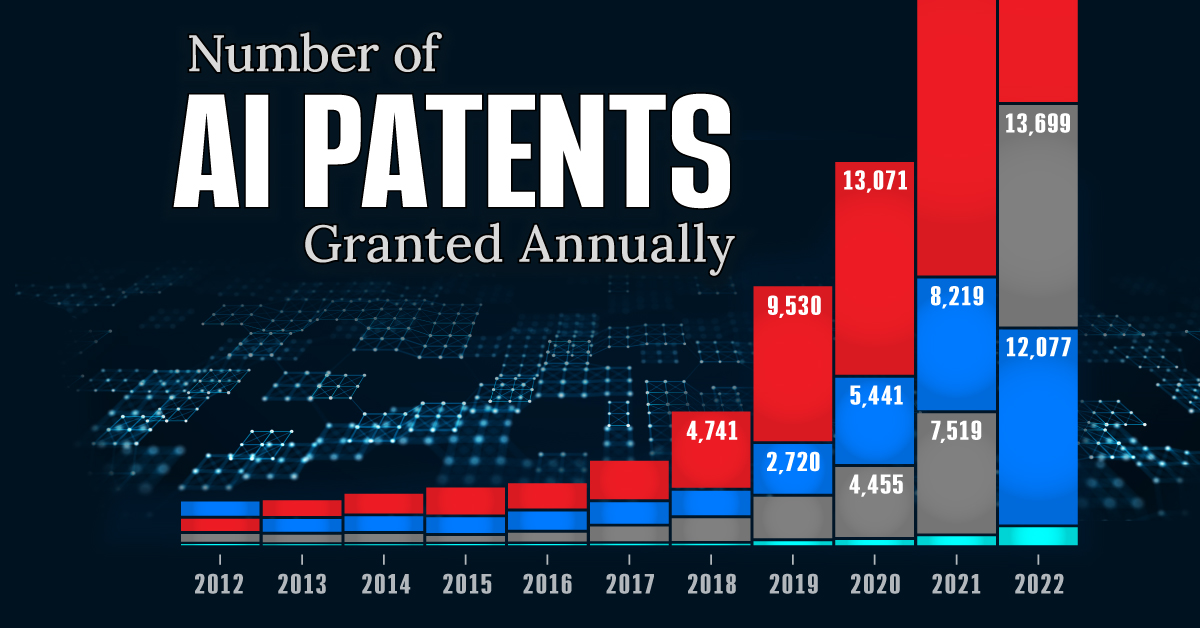
Visualizing AI Patents by Country
This was originally posted on our Voronoi app. Download the app for free on iOS or Android and discover incredible data-driven charts from a variety of trusted sources.
This infographic shows the number of AI-related patents granted each year from 2010 to 2022 (latest data available). These figures come from the Center for Security and Emerging Technology (CSET), accessed via Stanford University’s 2024 AI Index Report.
From this data, we can see that China first overtook the U.S. in 2013. Since then, the country has seen enormous growth in the number of AI patents granted each year.
| Year | China | EU and UK | U.S. | RoW | Global Total |
|---|---|---|---|---|---|
| 2010 | 307 | 137 | 984 | 571 | 1,999 |
| 2011 | 516 | 129 | 980 | 581 | 2,206 |
| 2012 | 926 | 112 | 950 | 660 | 2,648 |
| 2013 | 1,035 | 91 | 970 | 627 | 2,723 |
| 2014 | 1,278 | 97 | 1,078 | 667 | 3,120 |
| 2015 | 1,721 | 110 | 1,135 | 539 | 3,505 |
| 2016 | 1,621 | 128 | 1,298 | 714 | 3,761 |
| 2017 | 2,428 | 144 | 1,489 | 1,075 | 5,136 |
| 2018 | 4,741 | 155 | 1,674 | 1,574 | 8,144 |
| 2019 | 9,530 | 322 | 3,211 | 2,720 | 15,783 |
| 2020 | 13,071 | 406 | 5,441 | 4,455 | 23,373 |
| 2021 | 21,907 | 623 | 8,219 | 7,519 | 38,268 |
| 2022 | 35,315 | 1,173 | 12,077 | 13,699 | 62,264 |
In 2022, China was granted more patents than every other country combined.
While this suggests that the country is very active in researching the field of artificial intelligence, it doesn’t necessarily mean that China is the farthest in terms of capability.
Key Facts About AI Patents
According to CSET, AI patents relate to mathematical relationships and algorithms, which are considered abstract ideas under patent law. They can also have different meaning, depending on where they are filed.
In the U.S., AI patenting is concentrated amongst large companies including IBM, Microsoft, and Google. On the other hand, AI patenting in China is more distributed across government organizations, universities, and tech firms (e.g. Tencent).
In terms of focus area, China’s patents are typically related to computer vision, a field of AI that enables computers and systems to interpret visual data and inputs. Meanwhile America’s efforts are more evenly distributed across research fields.
Learn More About AI From Visual Capitalist
If you want to see more data visualizations on artificial intelligence, check out this graphic that shows which job departments will be impacted by AI the most.
-
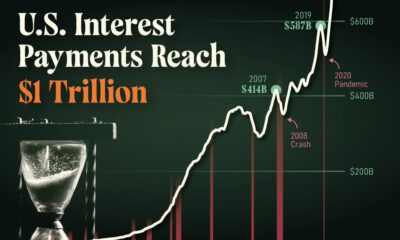
 Markets1 week ago
Markets1 week agoU.S. Debt Interest Payments Reach $1 Trillion
-
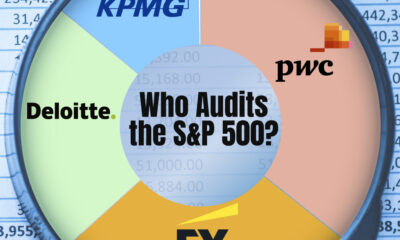
 Business2 weeks ago
Business2 weeks agoCharted: Big Four Market Share by S&P 500 Audits
-

 Real Estate2 weeks ago
Real Estate2 weeks agoRanked: The Most Valuable Housing Markets in America
-

 Money2 weeks ago
Money2 weeks agoWhich States Have the Highest Minimum Wage in America?
-

 AI2 weeks ago
AI2 weeks agoRanked: Semiconductor Companies by Industry Revenue Share
-

 Markets2 weeks ago
Markets2 weeks agoRanked: The World’s Top Flight Routes, by Revenue
-

 Demographics2 weeks ago
Demographics2 weeks agoPopulation Projections: The World’s 6 Largest Countries in 2075
-

 Markets2 weeks ago
Markets2 weeks agoThe Top 10 States by Real GDP Growth in 2023




